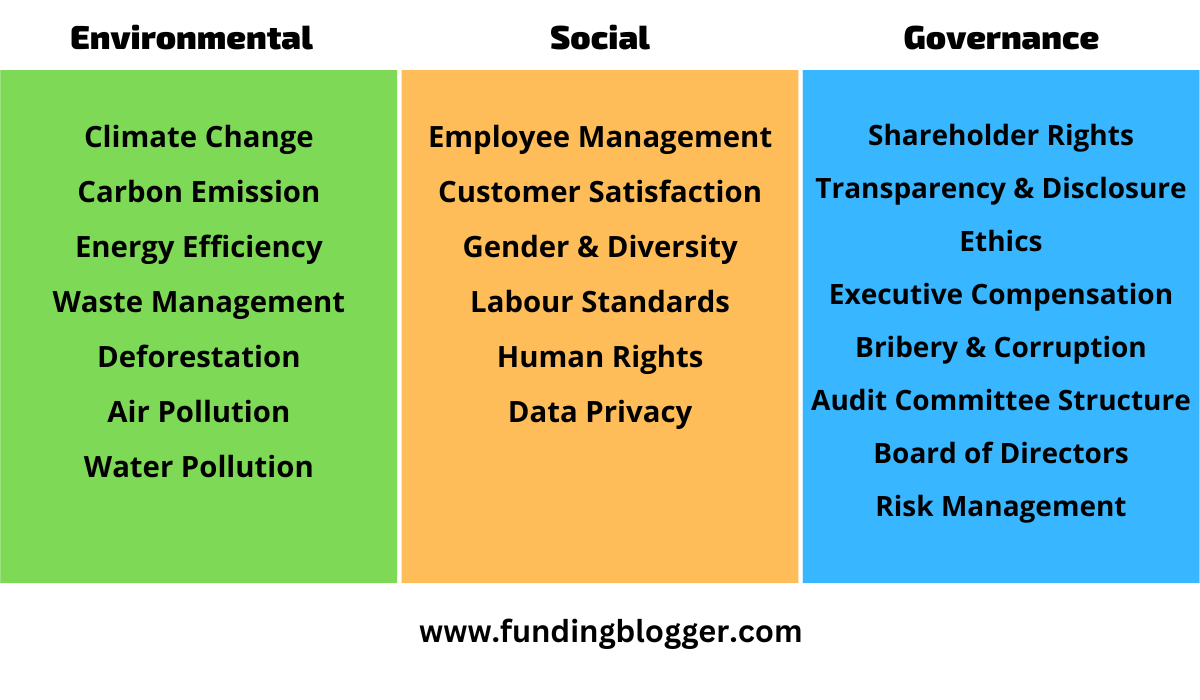ESG Meaning:
ESG stands for Environmental, Social, and Governance. It is a set of guidelines used to evaluate the ethical implications and sustainability of a business or investment.
Components Environmental Social and Governance in detail:
E (Environmental):
The emphasis of this component is on how a company’s operations affect the environment. It takes into account things like carbon emissions, energy consumption, waste management, pollution, resource conservation, and reducing climate change.
S (Social):
The social aspect of ESG examines how an organization handles its interactions with its workforce, clients, suppliers, and communities. It includes elements like fair labor practices, respect for human rights, diversity and inclusion within the workforce, involvement in the community, product safety, client satisfaction, and data privacy.
G (Governance):
The governance aspect of ESG refers to the framework and procedures that direct an organization’s decision-making procedures. It evaluates the integrity, accountability, and transparency of a company’s management and leadership. The make-up of the board, CEO compensation, shareholder rights, anti-corruption measures, risk management, and adherence to legal requirements are some important aspects taken into consideration.
Importance of ESG:
Beyond financial measurements, the ESG framework gives stakeholders, investors, and the general public a thorough understanding of a company’s performance. By supporting businesses that place a high priority on environmental preservation, social responsibility, and sound corporate governance, it seeks to promote ethical and sustainable business practices.
Examples:
Zomato, a food delivery app gives 100% green deliveries and is 100% carbon and plastic-neutral in India. So this is an ESG strategy of the company.
Similarly, Dabur is a 100% plastic waste-neutral company in India. The company collects, processes, and recycles the same amount of plastic waste that it sells in its product packaging in a year.
If you have this question in mind, how to startup a company? Then you can check out our startup guide section for related articles.
Discover more from FundingBlogger
Subscribe to get the latest posts sent to your email.

